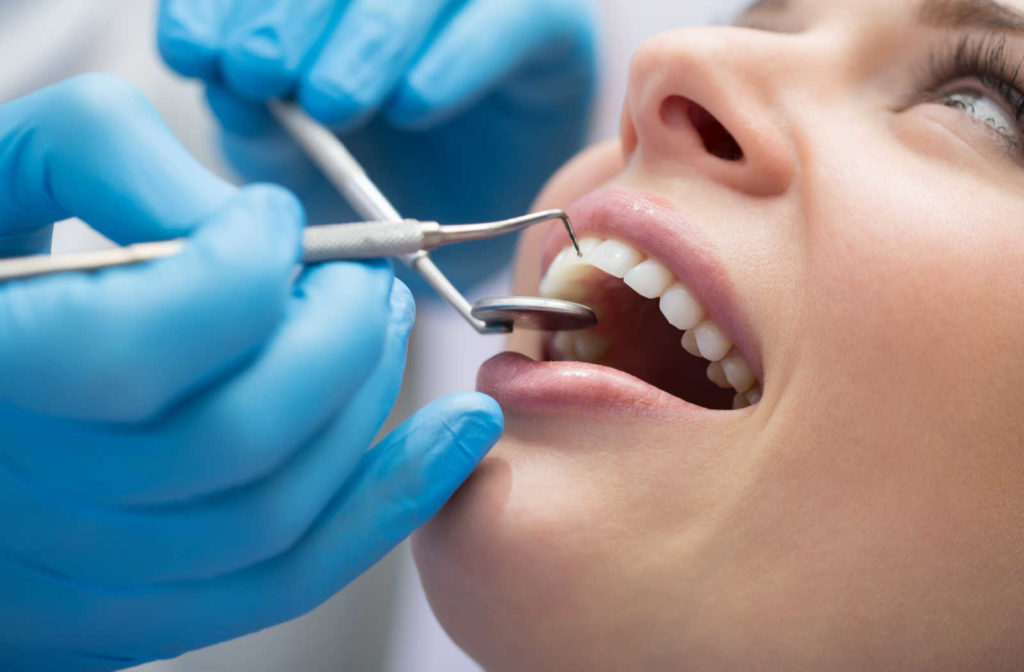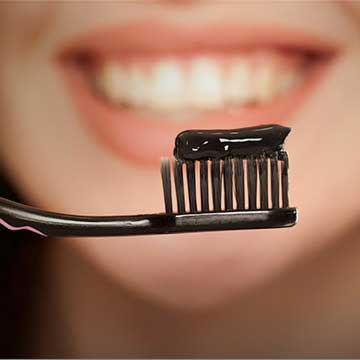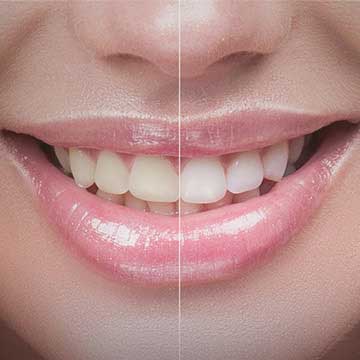A toothache may have several different causes. It might indicate that the gum tissue surrounding the tooth is unhealthy or that there’s a problem with your actual tooth. Improper dental hygiene can also cause toothaches.
Some people experience only minor toothache symptoms. Others may experience sharp, continuous, or throbbing pain. Commonly, the pain is only felt when pressure is applied to a tooth, like when biting down on something.
Most tooth pain will not go away on its own, and the affected tooth should be examined by your dentist so that they can determine the source of the pain, provide an appropriate treatment plan to alleviate the pain, and repair any damage to the tooth or surrounding gums.
Toothache Symptoms
A toothache is a pain that occurs in or near a tooth. Minor toothaches can be caused by temporary gum irritation, which can be treated at home. More serious toothaches are caused by dental and mouth issues that won’t resolve on their own and need to be treated by a dentist.
Other symptoms, in addition to tooth pain, may occur depending on the cause. Among these symptoms are:
- Swelling in and around the tooth or gums
- Fever
- Headache
- Bad tasting drainage from an infected tooth
- A foul odour emanating from the mouth
- Swollen lymph nodes
- Discharge or bleeding gums
What’s Causing Your Toothache?
The causes and severity of a toothache greatly vary depending on the underlying causes. To ensure that you aren’t suffering from a simple popcorn kernel stuck in your gums, floss daily and brush twice daily to remove any food debris.
If you’re absolutely sure your toothache isn’t caused by food, it’s time to see a dentist to see if you’re suffering from any of these common toothache causes:
- Repetitive motions such as chewing gum or grinding or clenching teeth. These movements can cause tooth wear.
- Gum disease.
- Teeth coming out of the gums or tooth extraction (for example, wisdom teeth).
- Tooth decay.
- Tooth abscess (a bacterial infection inside the centre of the tooth).
- Tooth Fracture (broken tooth).
- A broken filling

Will Tooth Pain Go Away on Its Own?
Toothaches that are painful around (but not within) your tooth may resolve on their own without the need for a trip to the dentist. Minor and temporary gum irritation can cause pain that lasts several days.
Even if a toothache isn’t dangerous on its own, an underlying infection can cause significant problems and result in a medical emergency if left untreated. If the pain lasts more than a few days and is located within your tooth, see your dentist right away.
Treating a Toothache at Home
If you can’t wait to see a dentist and just want to get some relief, there are a few home remedies that might help. These are only temporary and will not address any underlying problems.
Pain Medication
To relieve pain and inflammation ibuprofen (Advil) or acetaminophen (Tylenol) can be taken until you are able to see your dentist. Be sure to follow the recommended dosage on the bottles and that you are not taking any medications that contraindicate use of any pain relievers.
Cold Compress
For swelling and pain, apply a cold compress of ice wrapped in a towel to the affected area for 20 minutes at a time, repeating every few hours.
How Will the Dentist Treat Your Toothache
The cause of your tooth pain will influence how your dentist treats it.
Cavities
If a cavity is the cause of your toothache, your dentist will fill it properly or, in some cases, remove the tooth.
Root Canal
A root canal may be required in some cases if the source of the pain is a bacterial infection within the pulp of the tooth. If you have a fever or significant swelling, your dentist may prescribe an antibiotic.
Stuck Food
A small piece of food can get stuck under the gums and cause an infection. In this case, a deep cleaning procedure may be performed or recommended, followed by additional gum treatment if necessary.
How to Prevent Toothaches
Because most toothaches are caused by tooth decay, good oral hygiene practices can help prevent toothaches:
- Brush your teeth regularly with fluoride toothpaste.
- Floss your teeth at least once a day.
- Visit your dentist twice a year for a thorough cleaning.
- Eat low-sugar foods and consult your dentist about sealants and fluoride applications.
If you’re experiencing the symptoms of a toothache, or are looking to get a teeth cleaning as a preventative measure, book an appointment with the team at Otara Dental today.









